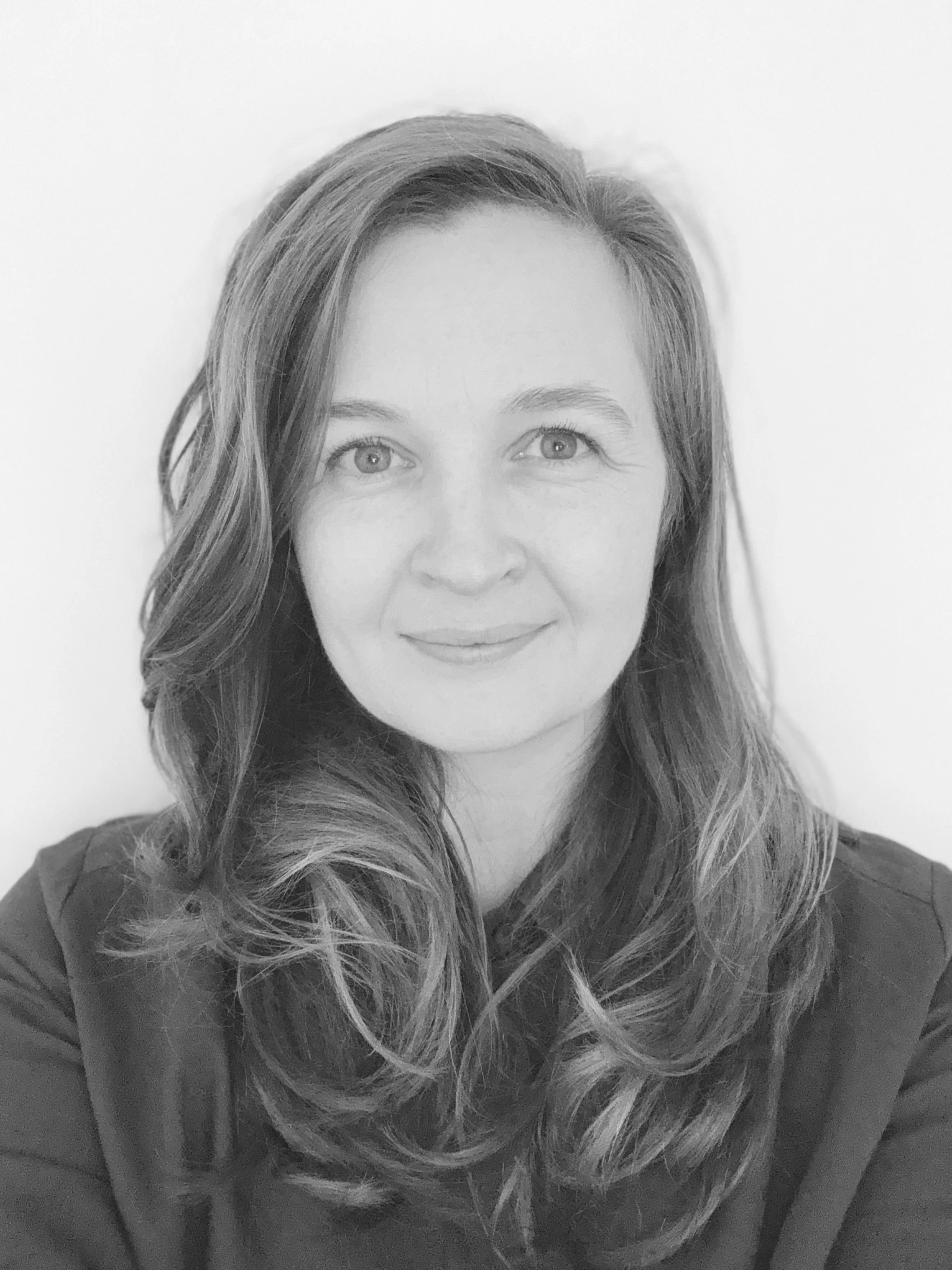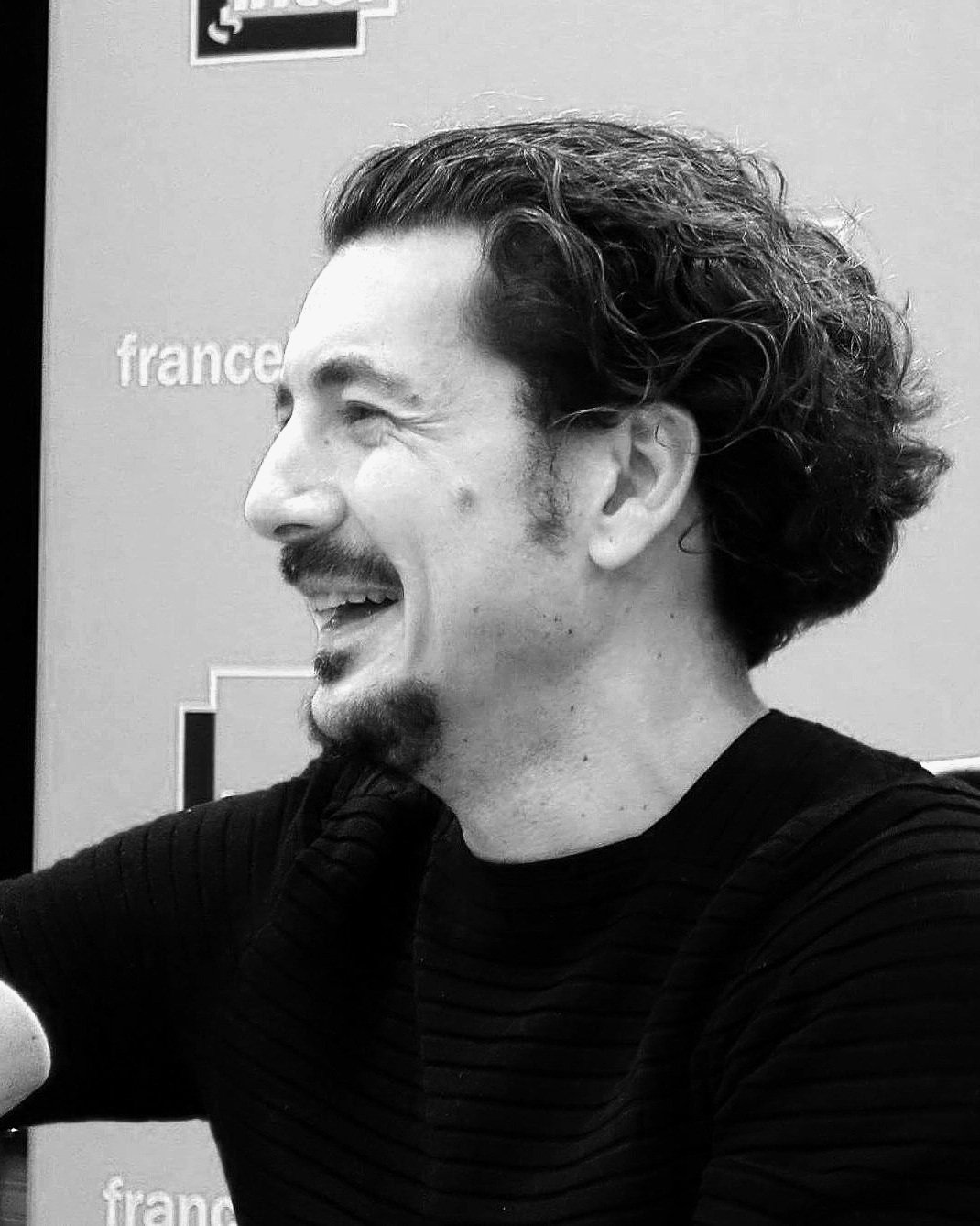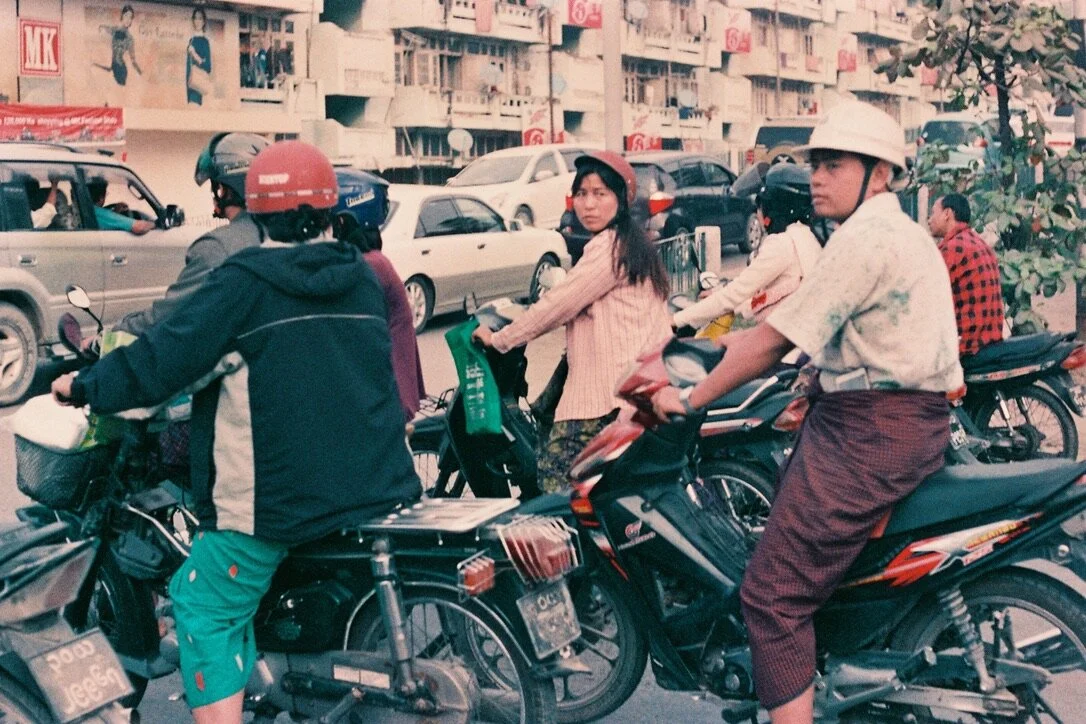Mahmoud is a strategic planning and design processes facilitator with expertise in collaborative leadership development, building social energy and community mobilization. Mahmoud currently lives in Brussels and manages his consultancy PLAYMAKER, which develops common spaces about re-development, peace building and community capital with/without geography. He is also co-founder of Syria Initiative (part of Common Space Initiative) in Beirut that aims to empower local peace builder networks.
Francois Bourse

François is is the Director of studies at Futuribles, a Paris based international, independent, private non-profit organization network on future studies that we have worked with in the past. He is also an Associate Professor at Cnam, a member of the innovation teaching team, the Research Chair of prospective and sustainable development.
Eilidh Kennedy

Eilidh is a strategic foresight consultant with a decade of experience supporting humanitarian organizations through research, analysis, and strategy design. She has led multi-country futures projects, developed foresight toolkits tailored to the aid sector, and authored widely used publications such as The Future of Aid, From Voices to Choices and Strategic Planning in the humanitarian sector: a manual to Foresight and Futures-thinking. Eilidh has managed analytical teams within INGOs, taught on foresight and humanitarian systems, and facilitated change across diverse organizational settings. As Founder and Director of IARAN, she brings a systemic, collaborative approach to navigating complexity and shaping long-term strategies for global humanitarian actors.
One month after the Future of Aid 2040 report launch in New Delhi, hosted by IARAN, START Network, CHL, and the Humanitarian Hub, discussions continue across Berlin and Bogotá. The report envisions a reimagined aid system by 2040 centered on inclusivity, local leadership, and collective action. Key voices—including Sneha Mishra, Anuj Tiwari, Rajesh Kapoor, Vasundhara Pandey, and Manu Gupta—called for equitable resource distribution, decentralized decision-making, and stronger community ownership. AIDMI emphasized integrating local knowledge and the evolving role of AI to enhance future aid delivery and resilience.
The world is facing a severe economic downturn, but the flow of remittances has been relatively stable and continues to provide support for many families in low and middle-income countries. According to the World Bank, global remittance flows reached $626 billion in 2022, an increase of 5% from the previous year. This growth is smaller than in previous years, but it is significant given the economic outlook. Investing in livelihoods support for migrants in high-income countries could be an effective way of supporting communities globally.
The growth in the humanitarian sector to include private companies as partners and implementers challenges the notion that organizations working in the humanitarian sector must be driven by the humanitarian imperative alone. The inclusion of commercial firms whose fundamental purpose is to make a profit necessitates an examination of the consequences when the humanitarian imperative is but one of many motivations.
In an effort to gain a deeper understanding of the practical realities that either foster or inhibit participation and the assumptions that underscore “capacity development” approaches, this paper examines a capacity development approach that was co-designed by the Regional Humanitarian Analyst at Save the Children East Africa Regional Office and the Project Director for the IRC-UoN Partnership for Education in Emergencies.
Michel Maietta

Michel is a strategic foresight professional with two decades of experience in the humanitarian and development sector. With a rich background as the former Director of Strategy at Save the Children International and Action Against Hunger, he now spearheads the Inter-Agency Research and Analysis Network (IARAN).
Michel's passion for education shines through in his decade-long commitment to designing and delivering cutting-edge training courses for humanitarian and development leaders. He shares his expertise at renowned institutions such as Science Po, Paris-Saclay, Deakin, and Federico II Universities, as well as at the Futuribles and IRIS Think Tanks. In addition, Michel serves as the Chair of the Ukraine Emergency Committee at the Fondation de France.
When he's not crafting bespoke foresight projects, Michel is at the helm of strategic and transformational initiatives, driving impactful change in the sector.
The international aid system faces unprecedented transformation. INGOs must adapt to a fragmented, polycentric aid landscape marked by shrinking funding, localization pressures, and emerging local actors. Human Resources (HR) functions are central to this shift. Outsourcing HR is no longer a stopgap but a strategic response—enhancing flexibility, cost control, and quality. Decentralizing HR empowers field operations while preserving organizational coherence. Internal HR evolves into a strategic steward, focusing on talent management and organizational values. As humanitarian aid becomes more territorial and fragmented, robust, adaptive HR models will be vital to sustain impact and relevance in an uncertain future.
In light of recent geopolitical shifts, the humanitarian sector is experiencing significant changes. The « To Each Their Playing Field » scenario from The Future of Aid: INGOs in 2030 report anticipates a fragmented humanitarian landscape, with decentralized responses and diverse actors beyond traditional INGOs. To remain relevant, INGOs must accelerate localization efforts, empowering regional partners and redefining their value propositions. This transformation is crucial to effectively navigate the complexities of a multipolar world and continue delivering impactful humanitarian assistance.
"Unleashing Local Potential: Advancing Aid Localization in Ukraine" delves into the critical importance of bringing power and resources closer to the communities in need. The article highlights the crisis in Ukraine as a turning point for advancing the localization agenda in humanitarian aid. By recognizing the capabilities of local actors and addressing the challenges they face, the article advocates for a transformative approach that empowers Ukrainian civil society and fosters effective localization of aid.
Innovation in the humanitarian sector is a challenging journey, often hindered by cultural resistance. However, with a transformation strategy, leadership support, and a culture open to change, these obstacles can be overcome. Strategic foresight, which anticipates future trends and proactively develops solutions, can greatly enhance this process. External pressures, like the COVID-19 pandemic, can also catalyze cultural transformation, prompting organizations to rethink traditional ways and embrace innovation.
The humanitarian ecosystem is failing to adapt to global transformations and new types of crises. This failure is rooted in the opportunistic nature of ODA flow governance and the entrenched value chain of formal humanitarian actors. To break free from this short-termism trap, the humanitarian ecosystem must shift its approach and values, prioritizing the needs and voices of those affected by humanitarian crises. Only then can it fulfill its potential to provide effective and lasting assistance.
The provision of impartial aid to affected populations has become everyone’s business in this post-globalized world. Aid actors cannot continue reproducing reactionary models that at the end benefit INGOs and not crisis-affected people.
Acabar con los encierros es, como lo define Paul Watzlawick, “una ultra-solución”: un intento de arreglar un problema deshaciéndose de todo lo que tenga que ver con el mismo. Al caer en esta trampa, los gobiernos están utilizando la ultra-solución, arriesgándose a destruir tanto la economía, como la vida de las personas al final del túnel.
Lockdowns are what Paul Watzlawick defines as “an ultra-solution”: an attempt to fix a problem by getting rid of it and everything that goes with it. Falling into this trap, governments are at risk of destroying both the economy and peoples lives.
L’homophobie est entendue comme les discriminations de tous ordres à l’encontre des personnes LGBT (lesbiennes, gays, bisexuelles et transgenres). Si «l’homophobie politique» est déjà connue en tant qu’outil de duplicité en politique intérieure, Michel Maietta explore davantage son pouvoir de manipulation, jusqu’à sa dimension géopolitique. L’auteur nous rappelle à quel point la protection des droits des personnes LGBT revêt une importance stratégique dans la défense plus large des droits de l’homme.
Is it possible to use foresight analysis to tackle the geopolitics of homophobia? Michel Maietta discusses the progress made so far and how the futures technique could be beneficial to decriminalizing homosexuality everywhere
















